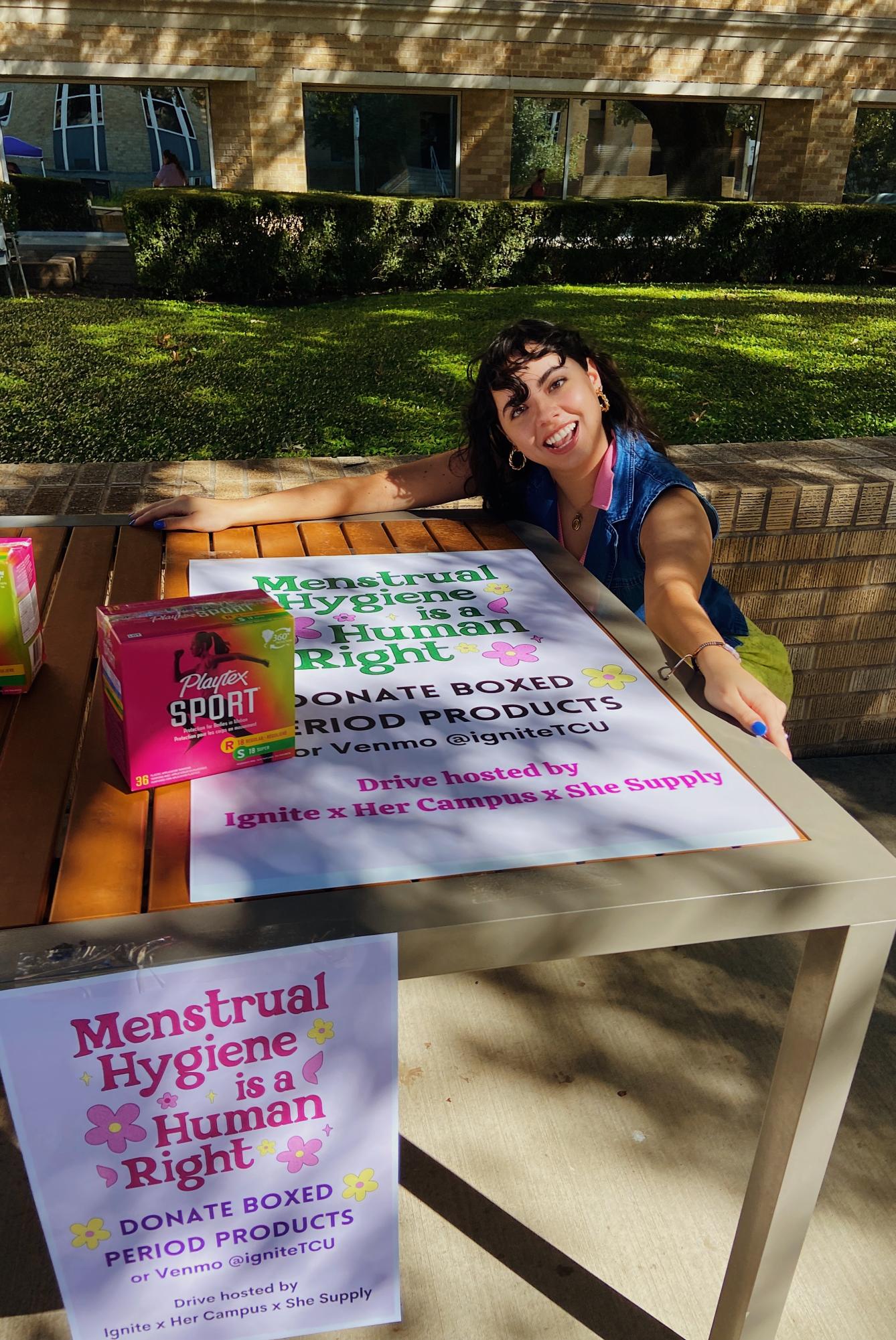Starting in the fall, TCU will provide free feminine hygiene products in the restrooms of all academic buildings.
The Student Government Association (SGA) unanimously approved the initiative, which was introduced by Isabella Marrin, founder and president of Ignite and Dominic Mendlik, SGA vice president.

“Menstrual equity combats both period poverty and stigma and should be considered a human right. TCU is in a unique position to address this inequality,” said Marrin.
“Period poverty” has become a hot topic on college campuses across the country. Groups like Ignite are addressing the stigmas surrounding menstruation and other issues involving women’s reproductive health.
Feminine hygiene products became exempt from Texas’ 6.25% sales tax rate on Sept. 1, 2023. The Texas state legislature passed House Bill 70 and made Texas the 24th state in the country to drop the “tampon tax.”
Republican State Senator Joan Huffman argued that menstrual products were a necessity for women’s “health and well-being.”
“Every woman knows that these products are not optional,” Huffman said.
Ignite’s impact
Ignite representatives learned about House Bill 70 last February while lobbying at the legislative session in Austin. That’s also when they became aware that some colleges provide free menstrual products to students.
“This is something that affects everyday education and it’s so important that everyone who menstruates is given the same opportunities and resources to succeed,” said Anneliese Gil, Ignite’s civic engagement chair.
Since the beginning of this initiative, nearly Ignite collected nearly 500 signatures through an online petition, supplemented by an additional 150 signatures through tabling events on campus aiming to gain support for the cause.
“Convincing others that this initiative is ‘worth it’ in terms of cost has certainly been the most difficult,” said Marrin. The ultimate cost of this initiative is still being finalized by TCU administration.

Ignite collaborated with the Queer and Allies Advocacy Council and has garnered the support of the TCU Health center, TCU facilities, the Gender Resource Office and various academic departments on campus.
“Community collaboration is the heartbeat of change, strengthened by each individual with a shared purpose of bettering the lives of those who follow,” said Marrin.
TCU’s campus is comprised of 62% women. When also taking into account the nonbinary and transgender population of students, a substantial portion of the TCU community will benefit from this new resolution.
“Having feminine products accessible across campus is more than just convenience,” said Marrin. “It’s a game changer for the TCU community. It signifies a commitment to inclusivity, equity and support for all individuals.”










